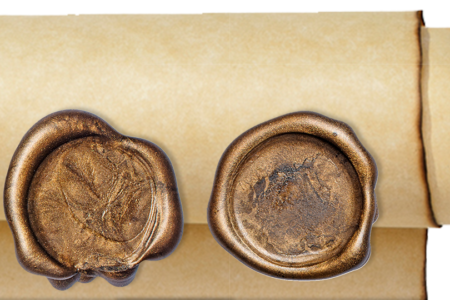Paul’s Personal Word
2 Timothy 4:9–15
If we had written the apostle Paul’s last words, we might have chosen to conclude his final epistle with a testimony to his victorious, faithful ministry. But the Holy Spirit directed Paul to write something different in 2 Timothy 4:9–15. The early church needed to know about Paul’s fellow workers, both the faithful and the unfaithful; and it needed an inside glimpse into how weak and needy the apostle felt in his final days.
Paul craved the companionship of close friends, especially Timothy, and the personal need for comfort as he sat in a cold Roman prison, awaiting his execution. But above all, Paul wanted copies of the Hebrew Scriptures, which would encourage him and edify his soul.
Paul’s Request
Paul urged Timothy to come to Rome from Ephesus: “Be diligent to come to me quickly” (v. 9). The word diligent means “make every effort” and “do your best.” It was like saying, “hasten, or hurry, to come to me.”
Most commentators say Paul knew his time on Earth was short, and he wanted Timothy’s companionship. Although he expressed loneliness and the need for assistance, Paul also wanted to give Timothy final instructions and encouragement. Timothy’s trip would take several months; and with winter approaching, he needed to leave immediately (v. 21).
Paul’s Report
Paul updated Timothy concerning others who helped or harmed his ministry: “For Demas has forsaken me, having loved this present world, and has departed for Thessalonica—Crescens for Galatia, Titus for Dalmatia” (v. 10).
Demas was a defector. Scripture tells us nothing about his background, salvation, or even when he met Paul and joined him in ministry. Paul mentioned him in Colossians 4:14 and Philemon 24, indicating he was a respected worker at one time. But Demas had “forsaken,” or abandoned, Paul when Paul needed him.
Paul did not state the specific crisis that caused Demas’s defection, and we are not to assume his abandonment implies Demas denied belief in Christ. Paul simply said Demas deserted because he “loved this present world [age]” (2 Tim. 4:10). The apostle John commanded Christians, “Do not love the world or the things in the world. If anyone loves the world, the love of the Father is not in him” (1 Jn. 2:15).
John used the phrase the world six times in verses 15–17, referring to the invisible, evil, spiritual system of this world governed by the Devil. The phrase things in the world can mean material objects, but here it refers to worldly values, attitudes, and evil thoughts and practices incompatible with God. Love for the world and love for God are diametrically opposed (Mt. 6:24).
Paul said Demas “departed for Thessalonica” (2 Tim. 4:10). Many believe Demas was from Thessalonica because he was listed with Aristarchus, who was from there (Phile. 24).
Paul also mentioned two other workers who departed: “Crescens for Galatia [a Roman province in Asia Minor], [and] Titus for Dalmatia” on the eastern shore of the Adriatic Sea (2 Tim. 4:10).
Paul did not condemn these workers, as he did Demas, because they were faithful and dependable. It seems they left with Paul’s blessing for these places where Paul had ministered.
Paul added, “Only Luke is with me” (v. 11). Earlier in his ministry, Paul called Luke the “beloved physician” (Col. 4:14). Paul was extremely blessed to have Luke as his personal physician and companion on some of his missionary journeys. Luke’s faithfulness was a great testimony to other Christians who lacked his boldness, and Luke stood out as one of Paul’s closest friends.
On his way to Rome, Paul told Timothy, “Get Mark and bring him with you, for he is useful to me for ministry” (2 Tim. 4:11). This was probably a surprise to Timothy. John Mark had accompanied Paul and Barnabas on their first ministry journey but left them abruptly and returned home to Jerusalem (Acts 13:13).
Scripture gives no reason why Mark abandoned the missionary team. Barnabas wanted to include John Mark on their second missionary journey, but Paul refused. The two argued, but Paul was resolute; and the men agreed to separate. Paul chose Silas to accompany him on the second missionary journey, and Barnabas took Mark with him to Cyprus (15:36–40).
Later Paul changed his mind about Mark and accepted him for the ministry (cf. Col. 4:10). Mark turned out to be a key helper, which teaches us relationships can be restored over time when all parties seek Christ’s wisdom.
Working with Barnabas, Mark probably matured in his service for the Lord; and Paul had been made aware of the fact. Paul no longer viewed Mark as useless but, rather, as “useful” for ministry. No doubt Timothy would have been encouraged to hear about this change. Mark would be an asset to Timothy as they traveled together to Rome, as well as an encouragement to others who first had failed but later succeeded.
Paul told Timothy, “And Tychicus I have sent to Ephesus” (2 Tim. 4:12). He was either sent to Ephesus already or would be sent soon to deliver Paul’s last epistle to Timothy. And he would probably remain in Ephesus to minister in Timothy’s place when Timothy traveled to Rome to be with Paul. Tychicus was not famous but was reliable and faithful in whatever he did. He was a great help to Paul and never deserted him. Paul asked Timothy to bring three things to Rome: “Bring the cloak that I left with Carpus at Troas when you come—and the books, especially the parchments” (v. 13).
The cloak was a large, heavy, sleeveless, round outer garment made from goat’s hair, with an opening in the middle to slip over one’s head like a poncho. It would protect Paul during the winter months.
The books were papyrus rolls, and the parchments were calf skins or vellum on which Paul could write. Commentators have speculated the scrolls were Old Testament writings, documents proving Paul taught a legal religion, or epistles he had written. Bible scholar Charles Ryrie said the scrolls were “probably Paul’s personal copies of portions of the OT [Old Testament].”1
Even as an old man with poor eyesight who was awaiting death in a dimly lit dungeon, the great apostle felt he needed to study. Carpus is mentioned only here, and no other information is given concerning him. All we know is that he lived in Troas and was a trusted and dependable friend of Paul.
Paul’s Reminder
Paul warned Timothy about an ungodly man who caused him and the gospel much harm: “Alexander the coppersmith did me much harm. May the Lord repay him according to his works. You also must beware of him, for he has greatly resisted our words” (vv. 14–15).
Alexander was a common name, and the word coppersmith in Greek refers to any metalworker. Scholars disagree on whether this is the Alexander mentioned in Acts 19:33 or 1 Timothy 1:20. Paul may have called him “the coppersmith” to separate him from all the other Alexanders in Scripture. Much more evidence is needed to identify him, but Timothy knew exactly who he was. Alexander was an evil man who may have been involved in Paul’s arrest and lied about him at one of the apostle’s trials.
Paul added, “May the Lord repay him according to his works” (2 Tim. 4:14). The word repay literally means “pay back.” It is not to be interpreted as Paul’s wish for vengeance. To the contrary, Paul knew God would repay Alexander for his maliciousness. This was a statement of fact, for God in His justice would not allow Alexander’s evil to go unjudged.
Then Paul gave Timothy a strong command: “You also must beware of him, for he has greatly resisted our words” (v. 15). The word beware means to guard against Alexander’s onslaughts to destroy Christianity and all who believe in Christ.
Paul’s warning was critical in his day but is even more so today. We live in perilous times, when Satan possesses even more means to thwart Christianity and the preaching of the gospel. Having been warned, let us also guard against Satan’s attacks, as Paul commanded.
ENDNOTE
-
- Charles C. Ryrie, The Ryrie Study Bible, ESV (Chicago, IL: Moody Publishers, 2011), 1,481 n 2 Tim. 4:13.








